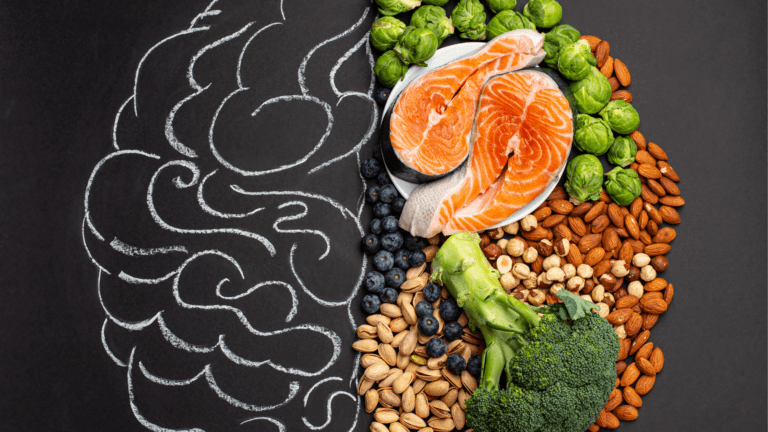
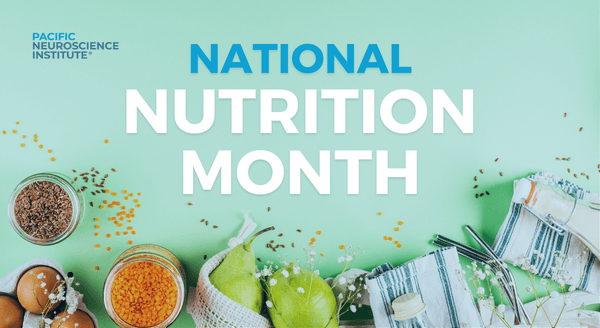
How To Embrace Healthy Living: National Nutrition Month
by Brianna Rauchman
March is National Nutrition Month, and the perfect time to make mindful changes that promote personal health and sustainability. Elevate your current and long-term vitality while reducing your carbon footprint with these 6 simple and effective steps.
Improve Your Nutrition and Save the Planet

Every March, thousands of individuals celebrate National Nutrition Month, an expansive initiative to promote healthy eating. Created by the Academy of Nutrition and Dietetics, this all-inclusive campaign highlights the importance of mindful eating and regular activity.
This year’s theme, “Fuel for the Future,” advocates for holistic nutrition that promotes personal longevity and sustainable consumption.
6 Simple Steps to Transform Your Lifestyle
Transforming your diet can be overwhelming. Oftentimes, established routines prevent us from expanding our horizons, and discovering nutritious alternatives.
If you’re searching for simple, yet effective, steps to elevate your long-term wellness, look no further. Keep reading to discover 6 inspiring health tips for brighter living.
1. Consume a wide variety of foods.
Eating the same foods every day can prevent you from receiving essential nutrients. The United States Department of Agriculture encourages building a diverse plate with a range of fruits, vegetables, whole grains, and lean proteins.

You can still enjoy your favorite treats while incorporating a colorful assortment of nourishing food into your daily diet. Start with small steps, such as integrating one to two new items in your meals.
2. Focus on whole, unprocessed food.
Whole foods are minimally processed, free from chemical additives, and contain the nutrients, fiber, and phytochemicals your body needs. In addition, whole foods provide a sustainable form of nourishment with a lower environmental impact.
Recent studies have demonstrated that ultra-processed food places undue pressure on agricultural infrastructure, and prioritizes a few high-yielding plants that threaten biodiversity and sustainable farming.
Processed foods also generate harmful carbon emissions and require excessive quantities of land, water, and energy. By avoiding these highly processed foods, you benefit your personal health, and the global environment.
3. Reduce your meat consumption.
Consider reducing your intake of red and processed meat. According to the National Institutes of Health, consuming red meat is linked to a heightened risk of cancer, heart disease, and diabetes.
By consuming healthier alternatives, such as fish, nuts or legumes, you can benefit from a 7-19% decreased risk of mortality.
According to Senior Lifestyle Coach, Molly Rapozo, MS, RDN, CD, legumes are an affordable and planet-friendly lean protein source. Brain-healthy diets such as the MIND diet can include legumes 3-4 times per week!
Consider adding legumes to your weekly meal plan through a dried bean recipe or a quick weeknight meal using ready-to-eat beans and lentils. Legumes can be incorporated into a variety of your favorite dishes, such as bean tacos, burgers, or lentil sloppy joes. Alternatively, you can explore more traditional applications like soup, chili, or salad. To add some spice to your meals, try mixing chana masala with chickpeas or combining dal with lentils.
4. Buy local and in-season produce.
Local, in-season produce supports local farmers, reduces the environmental impact of food production and transportation, and ensures maximum freshness and flavor.
Unsure of where to start? Visit your local farmer’s market, or use the Farmers’ Almanac seasonal fruit and vegetable guide to plan your shopping list.
5. Cut back on food waste.
Simple diet adjustments can decrease your environmental impact. Try planning your meals for the week, and only buying what you need. Additionally, you can use your leftovers in future meals, and compost your extra food scraps.
6. Swap single-use plastics for reusable containers.

According to National Geographic, disposable plastics generated 8.3 billion metric tons of landfill waste in the past 60 years, and by 2050, the ocean is expected to contain more waste than fish.
To make a difference, opt for reusable containers when shopping for groceries or packing a to-go lunch. Choosing homemade meals over takeout also reduces your consumption of single-use plastics.
Begin Today.
This National Nutrition Month, we can take the opportunity to re-evaluate our consumption habits, and make mindful changes to promote personal health and collective prosperity. There are numerous simple ways to optimize your wellness while reducing your carbon footprint, such as:
- Diversifying your diet
- Eating whole foods
- Reducing meat intake
- Buying local, in-season produce
- Prepping your meals
- Using reusable containers and bags
Remember that slow and steady modifications often result in long-term success!
Need Support to Achieve your Nutrition and Health Goals?
Join the Lifestyle Program at Pacific Neuroscience Institute®. The Lifestyle Program offers a research-backed approach to preserve, improve, and enhance your long-term wellness. Participants learn about memory training, nutrition, and combined physical and cognitive fitness (dual tasking). Tailored to suit everyone’s needs, the program can be accessed through one-on-one or group sessions, as well as online or in-person. For further details, click here.
How to enroll in the Lifestyle Program
Virtual and in-person sessions are available. To learn more about participation, contact us: lifestyle@pacificneuro.org | 213-344-2037
Useful Links
Related Videos
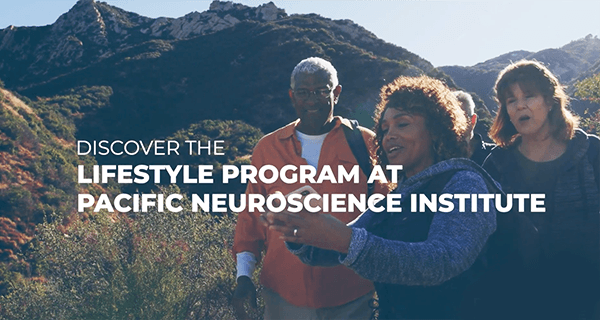 Lifestyle Program at PNI
Pacific Neuroscience Institute’s new Lifestyle Program offers a multimodal education approach to optimize brain wellness. Whether you aim to enhance your longevity, stabilize cognitive decline, or receive support after a…
Lifestyle Program at PNI
Pacific Neuroscience Institute’s new Lifestyle Program offers a multimodal education approach to optimize brain wellness. Whether you aim to enhance your longevity, stabilize cognitive decline, or receive support after a…
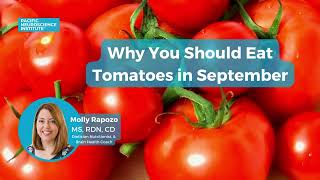 Why You Should Eat Tomatoes in September
Did you know that September is the perfect time to enjoy peak season tomatoes? Lycopene, the most abundant carotenoid in ripened tomatoes, is an antioxidant that fights against inflammation and…
Why You Should Eat Tomatoes in September
Did you know that September is the perfect time to enjoy peak season tomatoes? Lycopene, the most abundant carotenoid in ripened tomatoes, is an antioxidant that fights against inflammation and…
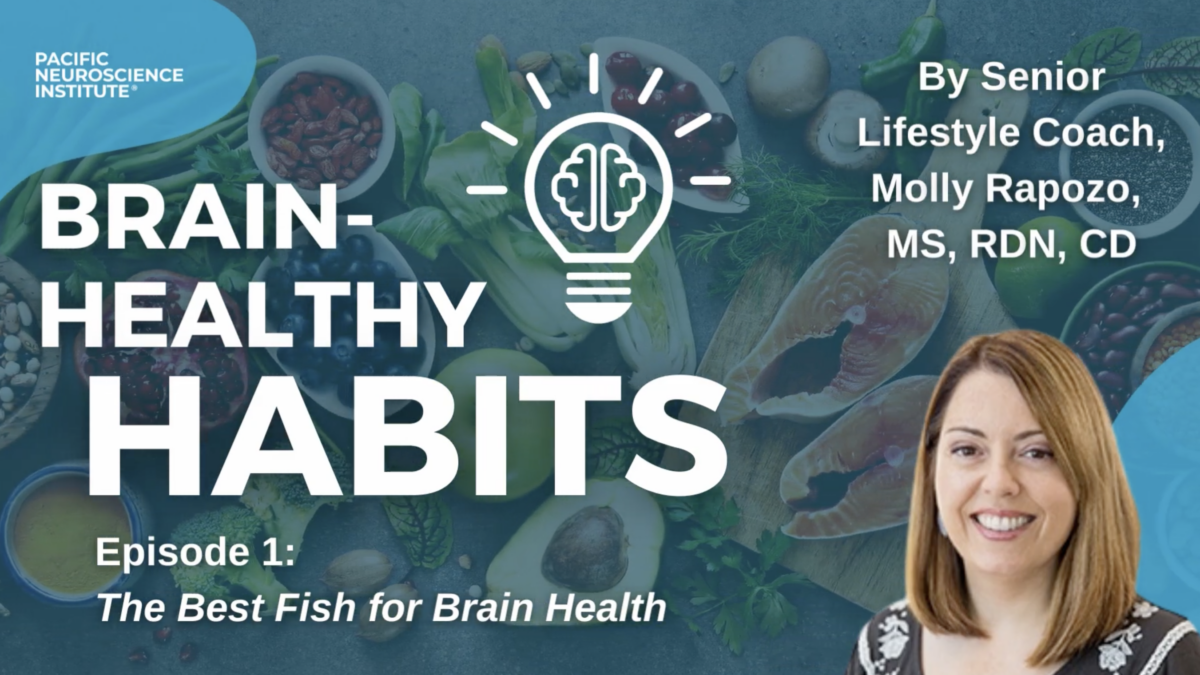 Brain-Healthy Habits Episode 1: The Best Fish for Brain Health
Brain-Healthy Habits Episode 1: The Best Fish for Brain Health
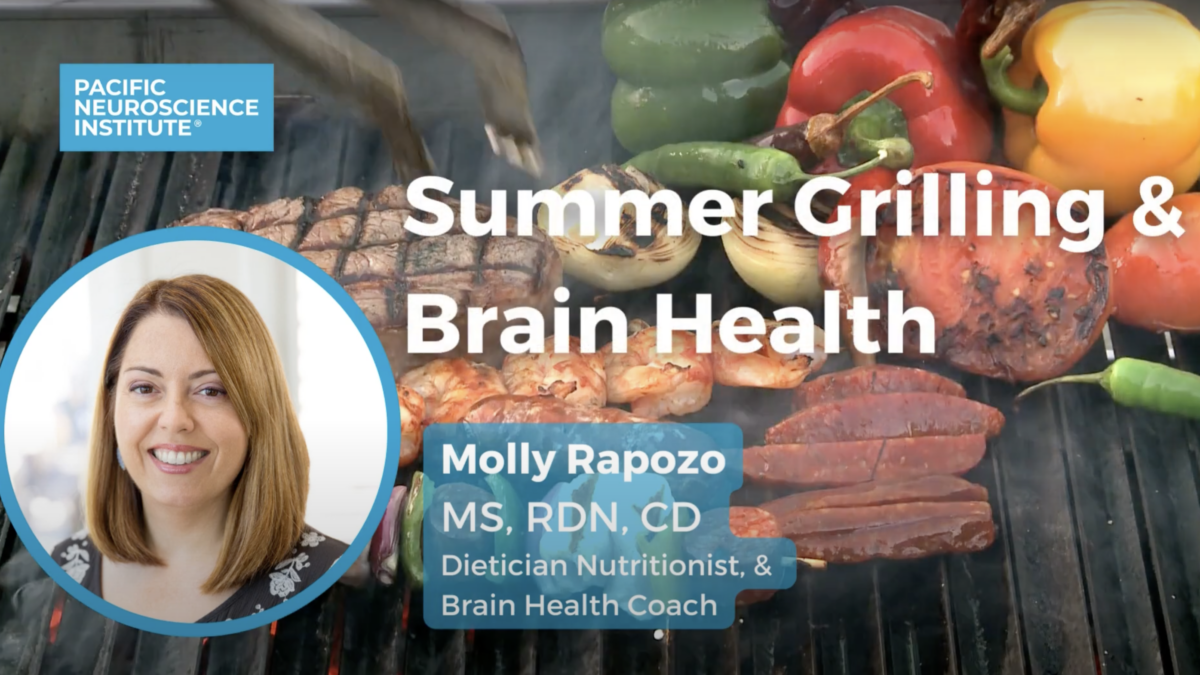 AGEs or Advanced Glycation End Products
AGEs or Advanced Glycation End Products
 A PNI Minute | The MIND Diet for Parkinson’s Disease
A PNI Minute | The MIND Diet for Parkinson’s Disease
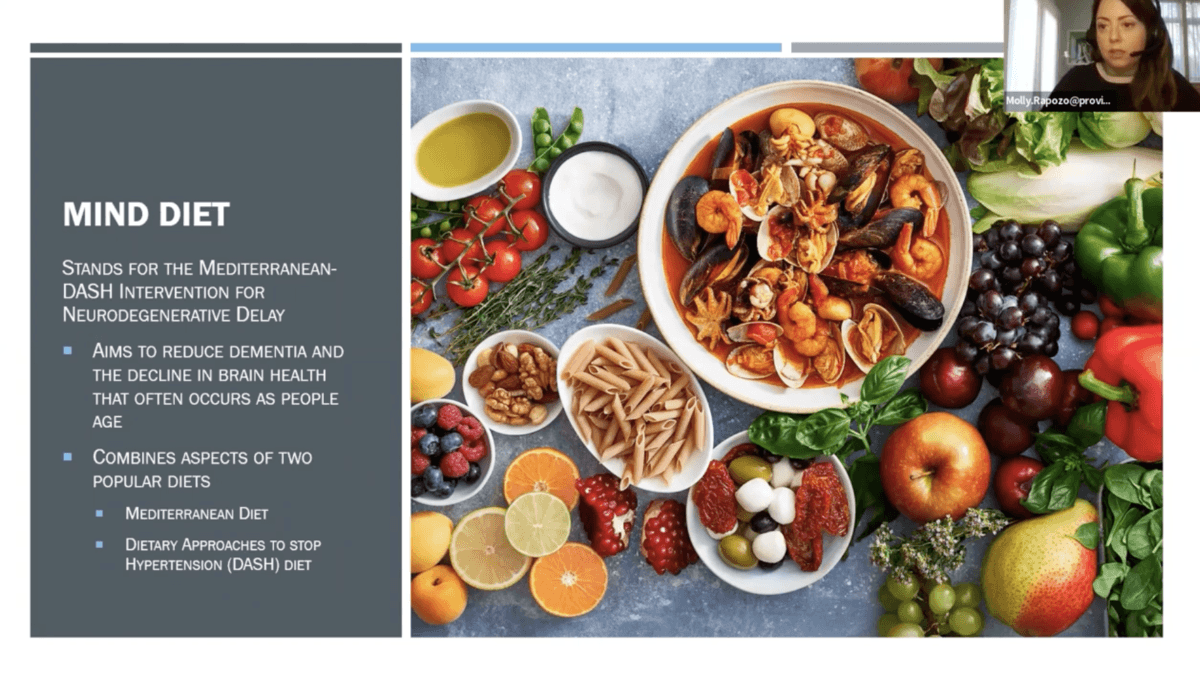 13. Everything Parkinson’s: Brain Boosting Foods for Parkinson’s Disease with Molly Rapozo, MS, RDN
Everything Parkinson’s Webinars: https://www.pacificneuroscienceinstit… Molly Rapozo, MS, RDN, CD, a registered Dietician Nutritionist and Brain Health Coach at the Pacific Brain Health Center, discusses nutrition and food in relation to…
13. Everything Parkinson’s: Brain Boosting Foods for Parkinson’s Disease with Molly Rapozo, MS, RDN
Everything Parkinson’s Webinars: https://www.pacificneuroscienceinstit… Molly Rapozo, MS, RDN, CD, a registered Dietician Nutritionist and Brain Health Coach at the Pacific Brain Health Center, discusses nutrition and food in relation to…

Lifestyle Program at PNI

Why You Should Eat Tomatoes in September
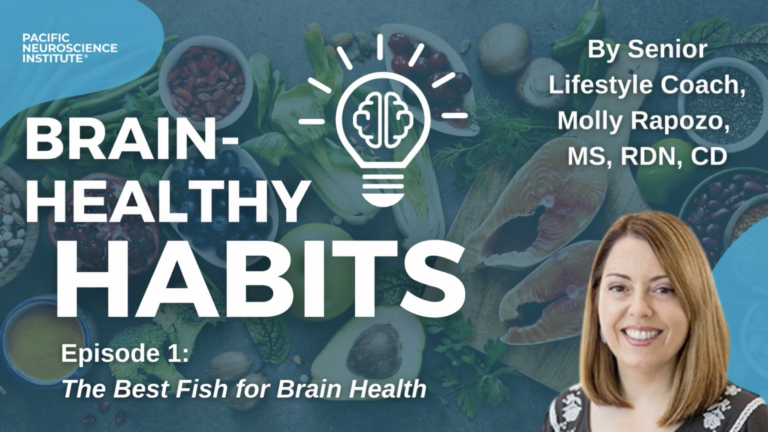
Brain-Healthy Habits Episode 1: The Best Fish for Brain Health
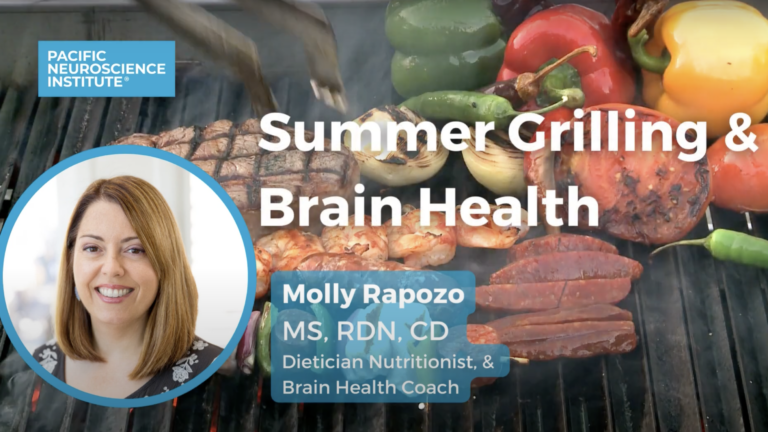
AGEs or Advanced Glycation End Products

A PNI Minute | The MIND Diet for Parkinson’s Disease
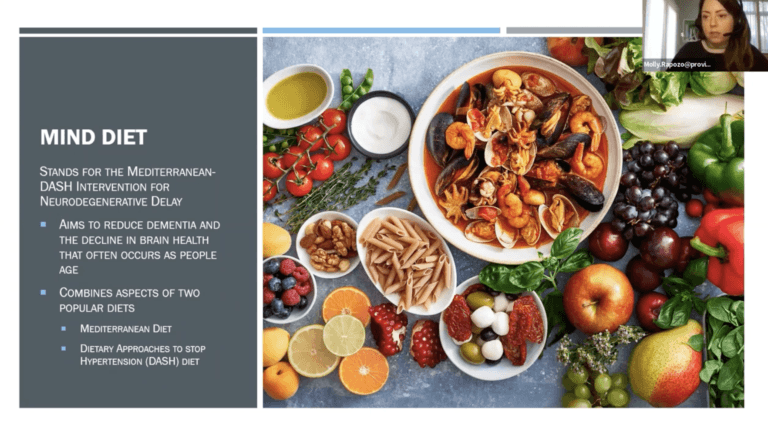
13. Everything Parkinson’s: Brain Boosting Foods for Parkinson’s Disease with Molly Rapozo, MS, RDN
Related Articles
About the Author
Brianna Rauchman
Brianna Rauchman, BA, is the Communications Coordinator for the Lifestyle Program, where she helps develop outreach strategies to connect with an expanding audience. Her responsibilities include providing launch support, developing content, assisting with collateral design, and planning social media strategies.
Last updated: February 25th, 2023
